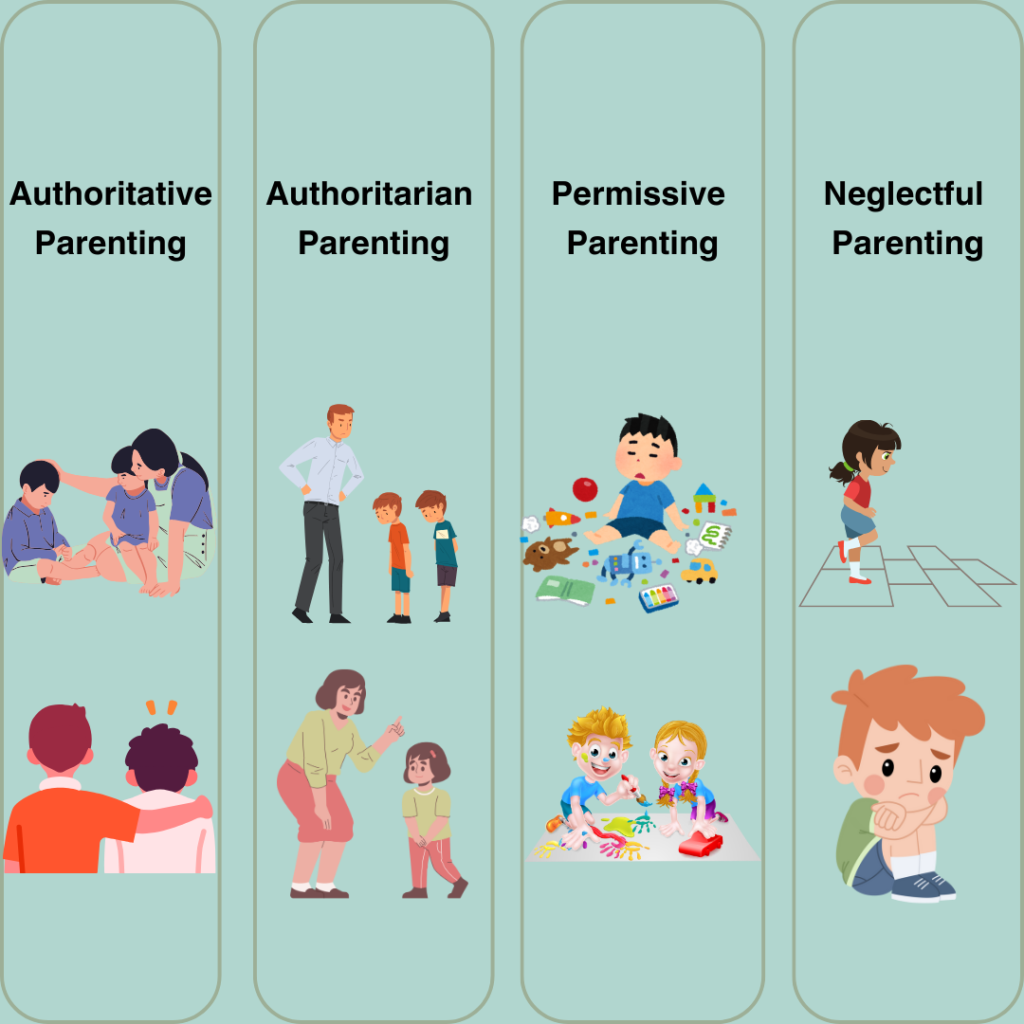Navigating the labyrinth of parenting styles can be as daunting as deciphering ancient texts. Yet, the quest for the best parenting style is more than an academic exercise; it directly impacts a child’s resilience, emotional intelligence, and self-esteem. Among the myriad approaches, four primary categories stand out: authoritarian, authoritative, permissive, and uninvolved. Each parenting style unfolds in unique patterns across the tapestry of cultures, molded by variables such as socioeconomic status, family structure, and migratory histories, highlighting the intricate dance between nature and nurture.
The quest for the best type of parenting style is not merely a pursuit of academic curiosity but a pivotal factor in fostering better social skills, discipline strategies, and a supportive environment that nurtures a child’s emotional needs. Amidst this complexity, authoritative parenting emerges as the most effective style, striking a harmonious balance between setting boundaries and encouraging independence, thereby cultivating successful kids adept in the decision-making process and equipped with robust social skills. This article unveils the profound psychological impacts of various parenting approaches on children and guides parents towards adopting strategies that create structure, reward systems, and guidance necessary for raising well-rounded individuals.

Understanding the Four Main Parenting Styles
Understanding the diverse parenting styles is crucial for identifying the best approach to raising children who are well-adjusted, confident, and capable of navigating their social environments effectively. Here’s a closer look at the four main parenting styles and their characteristics:
- Authoritarian Parenting
- Communication: One-way, from parent to child. Little room for negotiation or explanation.
- Discipline: Strict rules with high expectations. Non-compliance often leads to punishment.
- Child Outcomes: Children may follow instructions well and behave appropriately but often lack decision-making skills and may experience stress, hostility, and mental health issues due to the coldness and strictness of this approach.
- Authoritative Parenting
- Communication: Two-way, with open dialogue. Parents provide clear guidelines and explain the reasoning behind rules
- Discipline: Uses disciplinary methods as support rather than punishment. Combines warmth with firmness, making it clear that parents are in charge.
- Child Outcomes: Children tend to develop healthy assertiveness, good emotional control, empathy, and are successful in social and decision-making contexts.
- Permissive Parenting
- Communication: Open and nurturing. Parents communicate openly and usually let their kids decide for themselves.
- Discipline: Very few demands are made. Discipline is used sparingly, if at all.
- Child Outcomes: While these children may have good self-esteem and social skills, they can also be impulsive, demanding, and lack self-regulation abilities.
- Uninvolved Parenting
- Communication: Minimal. Basic needs are met, but there is little active involvement in the child’s life.
- Discipline: Few, if any, expectations or limitations are set for the child.
- Child Outcomes: These children may grow up to be resilient and self-sufficient but often struggle with emotional control, developing effective coping strategies, and maintaining social relationships.
Each parenting style has its unique set of characteristics and impacts on child development. Understanding these styles can help parents make informed decisions about how they wish to raise their children, aiming for a balance that fosters independence, emotional intelligence, and resilience.
The Psychological Impact of Different Parenting Styles on Children
The psychological impacts of different parenting styles on children are profound and varied. This section delves into how each style influences aspects such as happiness, social competence, aggression, and self-esteem among children.
Happiness and Social Competence:
- Children raised under authoritative parenting are likely to be happy, capable, and successful, showcasing strong self-esteem and self-competence.
- In contrast, children experiencing authoritarian, permissive, or neglectful parenting rank low in happiness, struggle with self-regulation, and face more problems with authority.
- Neglectful parenting, in particular, leaves children feeling less important, contributing to low self-esteem and poor social skills.
Aggression and Self-Esteem:
- A high level of aggression, shyness, and social ineptitude is observed in children who are subjected to overly strict (authoritarian) or overly lenient (permissive) parenting styles.
- Authoritarian parenting, characterized by excessive control, often leads to rebellious behavior and problematic actions in children.
- Conversely, authoritative parenting, which strikes a balance by being moderately strict, effectively reduces delinquent behavior and promotes better self-esteem among children.
Cognitive and Emotional Development:
- Positive parenting, often associated with the authoritative style, fosters early cognitive development, emotional balance, and the maturation of thought, while negative, hostile parenting leads to depression and social and cultural issues.
- Children of authoritative parents are more likely to become independent, self-reliant, and excel academically, thanks to an environment that encourages intrinsic motivation and self-efficacy.
- On the other hand, children from authoritarian or neglectful homes may develop social skill issues, indecisiveness, poor judgment, and struggle with anger management and hostility.
This exploration underscores the significance of adopting a balanced and supportive parenting style to nurture well-rounded individuals capable of handling life’s challenges with resilience and emotional intelligence.
Evolving Your Parenting Style
Evolving your parenting style is not only possible but necessary as your children grow and the dynamics of your family change. Here are some strategies and insights into how you can adapt your approach effectively:
- Listening and Rules:
- Active Listening: Make an effort to truly listen to your children’s opinions and feelings. This fosters trust and mutual respect, laying a strong foundation for healthy communication.
- Establishing Rules: Clearly define household rules and explain the reasoning behind them. This helps children understand expectations and the consequences of their actions, promoting a sense of responsibility.
- Modern Parenting Insights:
- Transparency and Trust: Embrace transparency in your relationship with your children. A climate of trust encourages open dialogue about challenges and successes
- Balancing Connection and Direction: Strive for a balance between forming a strong connection with your children and providing them with direction. This balance is crucial for their development into independent and emotionally intelligent individuals.
- Limiting Screen Time: Encourage activities beyond the digital realm by limiting social media and video game usage to two hours a day. This promotes engagement in the physical world and interpersonal relationships.
- Support into Adulthood and Beyond:
- Nurturing Intimate Relationships: Continue to support and nurture your relationship with your children even after they reach adulthood. This helps maintain a strong, intimate bond that can provide guidance and support through life’s challenges.
- Holistic Development: Focus on encouraging your children to pursue their passions and innovate beyond the curriculum. This approach supports the holistic development of your child, preparing them for a successful and fulfilling life.
- Safety Awareness: Be vigilant about potential online dangers such as predators and cyberbullying. Educating your children about these risks and how to navigate them safely is paramount in today’s digital age.
By incorporating these strategies, you can evolve your parenting style to meet the changing needs of your family, ensuring that you provide the best possible guidance and support for your children as they grow.
As we conclude, it’s imperative to recognize that the journey of parenting is not static but an evolving relationship that adapts as children grow and as new challenges arise. Embracing the principles of authoritative parenting while being open to evolving one’s style in response to the changing dynamics of family life ensures that children are provided with a nurturing environment conducive to their overall development. This exploration not only underscores the significance of informed, reflective parenting choices but also highlights the transformative power of adopting a balanced, responsive approach to parenting, fostering a generation of individuals who are not only successful but well-equipped to face the complexities of the world with confidence and competence.







